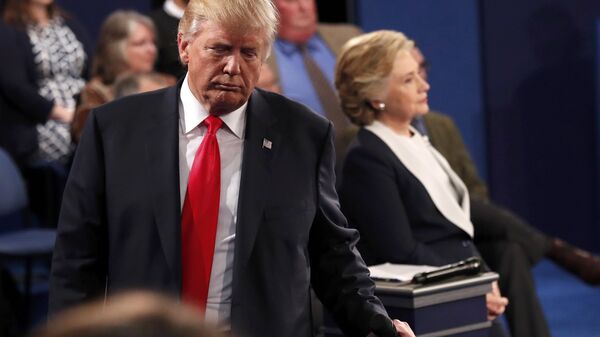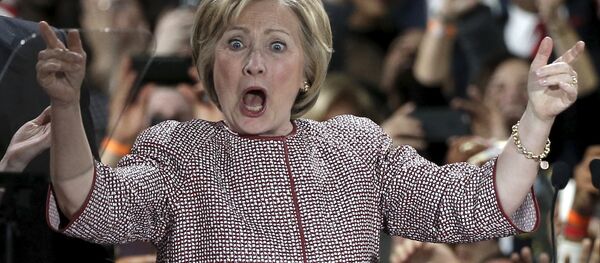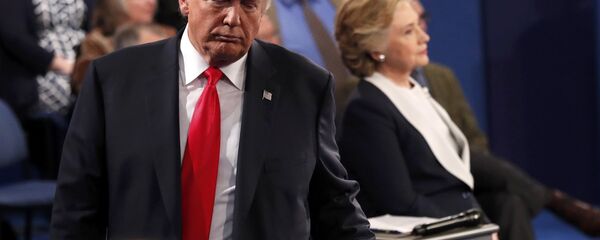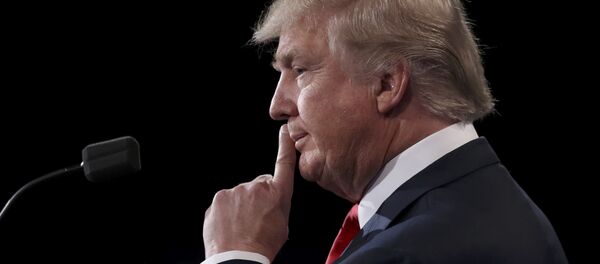Trump's free trade vision
During the election campaign, Trump has criticized many major trade deals which the United States has already stricken or is currently negotiating with other countries and regions, and even raised the possibility of leaving the World Trade Organization (WTO).
In July, at the Republican party convention Trump called the North American Free Trade Agreement (NAFTA), which united Canada, Mexico and the United States, "one of the worst economic deals ever made by our country” and warned that the Trans-Pacific Partnership (TPP) pending free trade agreement between the Unites States and 11 other Pacific countries "will not only destroy our manufacturing, but it will make America subject to the rulings of foreign governments."
Long before announcing his presidential ambitions, Trump stated that since the Cold War, the US leadership has often sacrificed the interests of the US economy and workers to foreign interests simply to woo more allies away from the Soviet Union. With those times now over, Washington, according to his logic, must pursue only those trade and investment deals that put country's own economic interests ahead of US global political ambitions.
“I am going to turn our bad trade agreements into great ones…. No longer will we enter into these massive deals, with many countries, that are thousands of pages long – and which no one from our country even reads or understands… I will make individual deals with individual countries," Trump stated at the July party convention just after lambasting TPP and NAFTA.
His stress on the individual deals in trade perfectly correlates with his intention to develop tete-a-tete approach when dealing with political leaders.
Reinsch, now a a fellow at the Stimson Center, also mentioned that Trump, if elected, would have a chance to repudiate NAFTA and TPP, agreements which he criticized most, yet it will be quite time consuming.
"The agreements themselves have provisions for getting out that would have to be obeyed – but the Congress would have to approve any new agreements he might negotiate. In addition, his authority to negotiate them will run out in 2018 unless Congress allows it to be extended," the ex-chief of the National Foreign Trade Council admitted.
Clinton's agenda and record on trade
While Donald Trump is being often labeled as a free-trade enemy, his views on free trade are much more nuanced. Hilary Clinton has long been perceived as a staunch supporter of free trade in general. However, her position sometimes proved to be inconsistent.
As First Lady, Hilary Clinton praised the achievements of NAFTA which her husband and former President Bill Clinton championed. In 1998, in a keynote speech given at the Davos Economic Summit, she praised business leaders for mounting “a very effective business effort in the US on behalf of NAFTA.“ Yet by 2005, she suggested that NAFTA was "flawed" and was widely expressing reservations about free trade agreements, voting that year against the Central America Free Trade Agreement (CAFTA).
In 2012, Secretary of State Clinton famously stated that "TPP sets the gold standard in trade agreements to open free, transparent, fair trade, the kind of environment that has the rule of law and a level playing field."
With elections approaching, Clinton shifted her position on TPP, recently stating her opposition to this deal, much to displeasure of many in the Obama team and much to the joy of labor and environmentalist voters.
"I think Hillary Clinton has a keen perception of the strategic importance of trade agreements and would continue to pursue them, taking care that concerns of our labor and environmental communities are adequately addressed in the process," William Reinsch said of expectations from a possible Clinton presidency in the trade sphere, adding that her two likely focuses would be a trade agreement with the United Kingdom as it leaves the European Union and concluding TTIP, another ambitious project by outgoing president Barack Obama aimed at a free US-EU trade regime.
James Thurber, a distinguished professor of government at the US Center for Congressional and Presidential Studies, echoed this opinion.
"Hillary Clinton will support TTIP and she will take some time to 'improve' TPP before support it. She will be for free trade if it is just for our workers, the environment, and human rights," he told Sputnik.
In May, the Pew Research Center published an opinion poll that showed that nearly half of US citizens thought that US involvement in the global economy was a bad thing because it lowers wages and costs jobs, while 44 percent regarded it as a good thing because it provides the country with new markets and opportunities for growth.
The Critical Issues Poll, conducted last month by the Behavioral and Social Sciences Department at the University of Maryland, stated that 50 percent of respondents believed Trump would likely bring more significant economic change to the US system than Clinton (34 percent), though the question fell short of noting whether these are changes for the better or for the worse.





